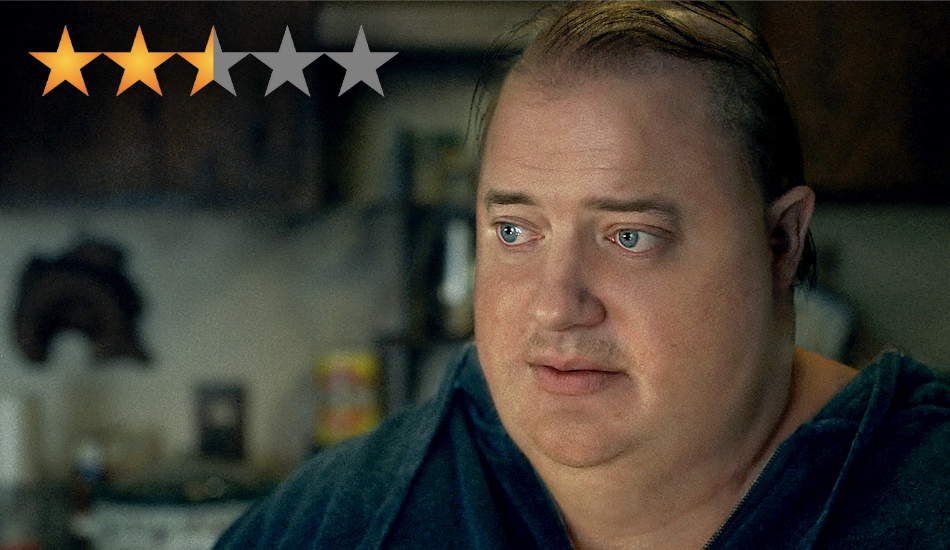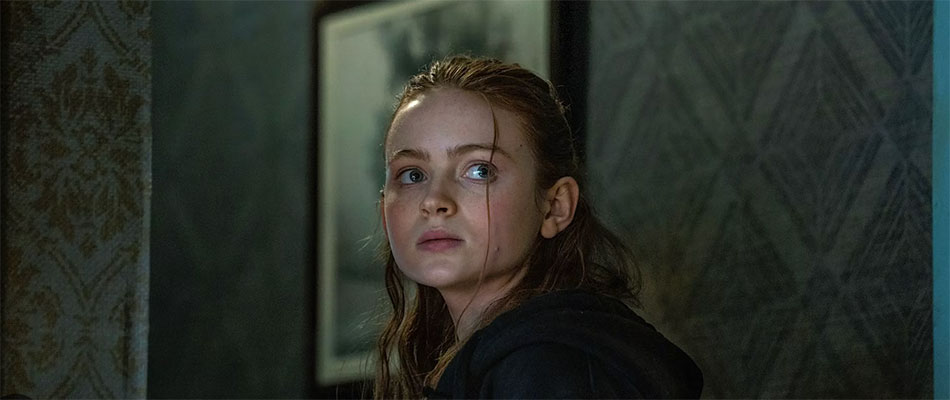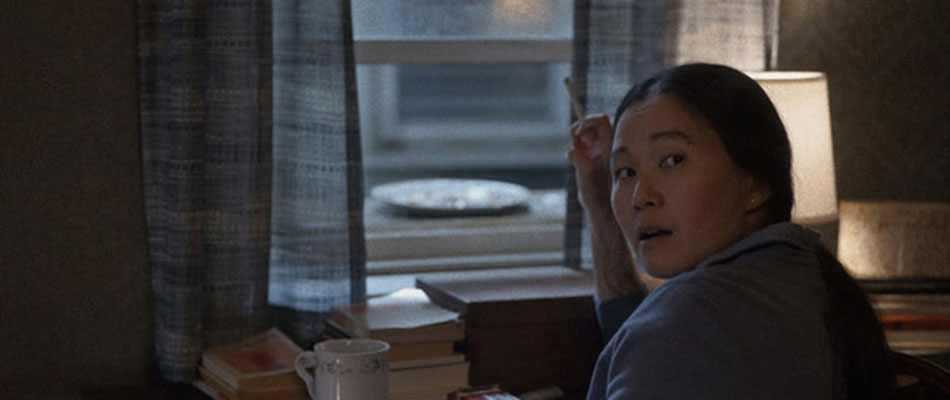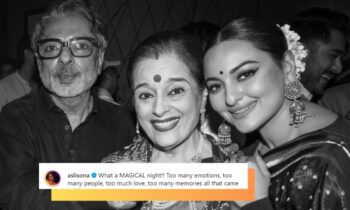The Whale Review: Moved By Performances, Held Back By Its Pity For Fat People
Is it empathy or pity?
Call me Moved. (Sorry, I wanted to get in my own Moby Dick reference.) The Whale has a cast of five—Brendan Fraser, Sadie Sink, Hong Chau, Ty Simpkins, and Samantha Morton—and each of their performances is powerful and moving, with Sadie and Chau being the true MVPs for me. The film attempts to make us empathise with its titular character, a morbidly obese queer English professor called Charlie, as he tries to reconnect with his estranged daughter, but is incapacitated by his guilt for the most part. To an extent, it does manage to make us feel for these characters. However, the Darren Aronofsky film, with an adapted screenplay by author Samuel D. Hunter, loses its balance treading the thin line between empathy and pity and veers dangerously, even if unintendedly, into the fatphobic territory.
View this post on Instagram
Charlie, played in a career-defining performance by Brendan Fraser, is morbidly obese and a recluse. His condition is due to binge eating over the guilt he feels after his boyfriend, Alan dies by suicide. Charlie conducts English composition classes online but keeps his webcam off. He also doesn’t have health insurance, and therefore, won’t go to the hospital after he gets diagnosed with congestive heart failure by his friend and caregiver, Liz (a moving Hong Chau). Unable to convince him to save himself, Liz enables his unhealthy food habits.
Aware that he has barely days to live, Charlie tries to reconcile with his daughter, Ellie, who he abandoned when she was eight, when he left her and her mother to be with Alan. An angsty teen who seems cruel on the surface, Ellie agrees to spend time with Charlie after he offers to rewrite her English essays for her and pay her for her time, as long as she doesn’t tell her mom. There’s also a subplot involving Thomas, a missionary from the church that Alan was once a part of, who thinks he can ‘save’ Charlie.
What unfolds in Charlie’s last few days, in his tiny apartment, as he deals with his feelings, his guilt, and the emotions of these other people connected to him, is what The Whale is about.
As expected, the film is laden with tons of Moby Dick references. Some are obvious, such as Charlie asking Thomas to read him a critique essay of Moby Dick to calm him down during an anxiety attack. Or that Charlie’s character is the titular whale, metaphorically, because he uses his weight to distract people from the sadness and guilt that define his existence now. The film is also entirely set in Charlie’s cluttered apartment, with wooden interiors, and a constant curtain of rain pouring outside during most scenes, as if to give us the illusion that we’re on a ship in stormy waters, until the final day comes and the sun shines. This is further emphasised as we see Charlie almost swaying to balance his weight as he walks from one place to another, and uses contraptions that are too small for him, and might just break any minute under his weight. His couch, his bed, his bathroom, all of it feel small.
When all of the above, and the strong performances by its cast come together, some of The Whale’s poignant story effectively shines through. Charlie thinks that he can direct people’s disgust to his obese body, in an attempt to displace their judging him for how he abandoned his family or (as per him) caused his lover’s death. However, my problem with the film is that it can’t go beyond its own disgust or pity towards fat people, and doesn’t even attempt to understand their psyche beyond “Oh there’s a sad reason behind why I am fat, so you must empathise with me. But also, it’s guilt and so it’s okay if you hate me because I probably deserve it.”
Also Read: Class Review: Fairly Gripping Elite Adaptation Gets India’s Teens And Class Struggles Somewhat Right
The way Charlie gnaws at that bucket of chicken or devours that pizza when he goes on a binge, felt overkill to me. Just like in instances of gory violence against women, we say that it could’ve implied instead of shown, the disgust that the audience is supposed to feel could’ve been subtly implied instead of being repeatedly underlined in bold. The webcam being off, not answering the doorbell for the pizza guy, and his difficulty in moving about were enough to make us feel the emotions. I didn’t need to see Charlie’s naked body in the shower or watch him eat like that to feel it. Fat people can eat normally without their lips smacking loudly or being clumsy.
Looking at Charlie from this lens actually lessened the emotions I felt for him. I mostly felt anger. Charlie patiently tolerates his daughter’s barbs, because he feels he deserves it and this is his way of making up to her. In the first 30 minutes of the film, we are told that Charlie won’t go to the doctor because he doesn’t have money and no life insurance. It made me think that this was going to, in some ways, play into the fact that most overweight people do not like going to doctors because their weight is always blamed and they’re shamed instead of actually getting considerate treatment. However, it turns out that he does have money that he is saving up for Ellie, another way to assuage his guilt for leaving her.
I felt Ellie’s inner turmoil and angst, and Sadie Sink so perfectly nailed that closed-off, unpredictable teenager who was concealing so much pain inside. But I was genuinely terrified of her character, and somewhat triggered by the disgust and pity she felt for Charlie that the latter put up with.
For me, it was Liz’s helplessness and despair at losing the one friend she was trying to keep alive because she understood his pain and guilt that became one of the more moving performances. My favourite scene, however, features Samantha Morton, who plays Charlie’s ex-wife Mary, as she both comforts and confronts Charlie. It was a powerful one that doesn’t need to lean on the crutches of Charlie’s weight to stir up strong emotions.
Also Read:
Verdict
I went into The Whale expecting to cry, or perhaps be understood. I’ve been overweight all my life, and despite what I’d like to believe is a sparkling personality, my physical appearance has inhibited me from having and doing so much that I wanted. In the opening scene, we see Brendan Fraser’s Charlie keep his webcam turned off during an online lecture that he is teaching, yet if the voice was a measure of personality and appearance, you’d think it was some hotshot professor the students could’ve had a crush on. The scene reminded me of how I avoid putting myself on video, even though I have so much to say. I mean, this review could’ve been a video. I shouldn’t feel that way, right? After all, body positivity is the cause du jour. And yet.
The Whale gets a lot right, but sadly I wasn’t able to feel the full impact of it because the film couldn’t transcend beyond a very superficial understanding of the emotions of fat people, and just how complex and subconscious fatphobia can be. The story moved me only when it wasn’t trying to hold up a neon sign telling you exactly how to feel about a fat person’s body.
A24’s The Whale, brought to India by Impact Films, is currently in cinemas.
Throwback Thursday: Bollywood’s Cheap Shots At Plus-Sized Women Are Exhausting



















